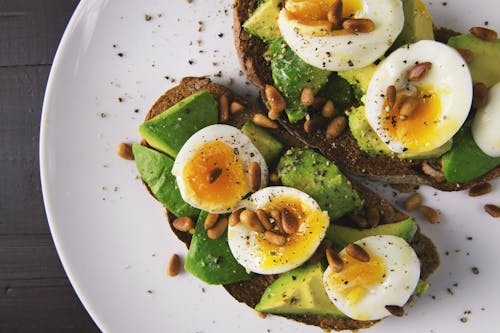A lot of nutritionists and dietitians consider, ‘Eat less, move more’ as the foundation of all the weight loss strategies. But is it really worth preaching? Is the ‘always chanted’ strategy as manageable and straightforward as it sounds? This article brings you the answer to all your perplexed thoughts and questions.

This advice seems to be based on the first law of thermodynamics, which applies beautifully to internal combustion engines. Not so much to the human metabolism.
Nevertheless, this theory’s simplicity is so intuitively appealing that it has endured, despite all the evidence to the contrary. There are chances that you already know that reducing the amount of food you eat starts well and ends badly, but you keep doing it anyway.
Let’s imagine this scenario; you reduce your calorie intake substantially and quickly lose weight. As counting calories is what you’ve been instructed to do, and that is what you have always done, you know nothing else except eating less.
That sure can offer a significant effect at first as you reduce your calorie intake and quickly lose weight. However, what happens is that you are hungry pretty much all the time.

This makes your weight reach that inevitable plateau where your hunger is more raging, gnawing at both your stomach and your resolve.
To cut it short, you are sure to regain the weight that you lost given how unsustainable this strategy is. That is what proves that dieting’s long-term result may paradoxically be the opposite of the desired goal. Cutting calories should certainly be a part of the whole weight loss strategy but should not be the only modality used. When used appropriately, in conjunction with other lifestyle changes, it can have a powerful effect on your weight loss.
Here are a few tips that can make you lose weight in the long-run.

- Cutting out carbs: This is one of the most effective solutions for losing weight organically. A low carbohydrate diet works because it stimulates the release of fat from storage by reducing insulin secretion. Too much of this hormone can make you fat and sick.
- Eat more fat and protein to burn fat: While this may sound counter-intuitive, given the prevalence of low fat diets, nutritional research provides us with mixed results as far as diets do. What we do know for sure is that added and extra sugar is detrimental to you. This is in fact what stimulates the fat production, especially in the liver. Of course when you cut down sugars and carbs, these need to be replaced with something. It might be to your benefit to replace them with healthy fats and proteins. A word of caution here though, it might just be easy to overdo this so you need to watch what you are eating to ensure you do not overindulge with the calories.
Wrapping it up
Unlike an internal combustion engine, the human body is a complex living organism driven by conventional survival mechanisms. You are sure to engage in a battle with your body when you reduce your fat and calorie intake. And trust us when we say, engaging in this battle can be the most futile thing. Work with your body like a dear friend and not a foe.
You can tune to the podcast, Decoding Obesity by Dr. Avishkar Sabharwal, who is M.D. and Dipl. ABOM, trained in Internal Medicine both in India and the U.S. and is board certified in Obesity Medicine and Lifestyle Medicine, to know more about Obesity Prevention tips and Weight Management Advice in detail from medical experts.
Disclaimer: Dr. Avishkar Sabharwal, MD is a medical doctor, but he is not your doctor, and he is not offering medical advice in this Blog/Article. If you are in need of professional advice or medical care, you must seek out the services of your own doctor or health care professional. This group provides information only and does not provide any financial, legal, medical, or psychological services or advice. None of the content in this group prevents, cures, or treats any mental or medical condition. You are responsible for your own physical, mental and emotional well-being, decisions, choices, actions, and results. Avishkar Sabharwal, MD disclaims any liability for your reliance on any opinions or advice contained in this post.





